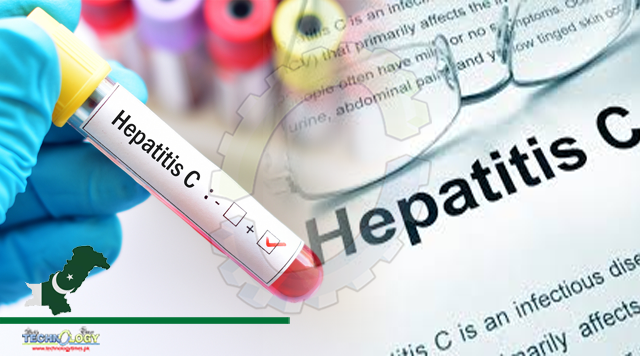The World Health Organisation (WHO) country office Pakistan on Tuesday said that Pakistan has the highest prevalence of Hepatitis C (5%) globally and has the highest number of people suffering from the disease after China.

The World Health Organisation (WHO) country office Pakistan on Tuesday said that Pakistan has the highest prevalence of Hepatitis C (5%) globally and has the highest number of people suffering from the disease after China.
Meanwhile, health experts said that around 80 percent of people in Pakistan are not aware that they are suffering from hepatitis.
WHO is commemorating World Hepatitis Day and the theme of the day this year is “Hepatitis can’t wait” conveying the urgency of efforts needed to eliminate hepatitis as a public health threat by 2030. With a person dying every 30 seconds from hepatitis related illness, even in the current COVID-19 crisis, we can’t wait to act on viral hepatitis.
The statement issued by the WHO country office referring to its country head Dr. Palitha Mahipala said that the country is still facing numerous challenges in hepatitis response. It has the highest prevalence of Hepatitis C (5%) globally and has the highest number of people suffering from HCV after China.
“COVID-19 further challenged our response and our essential health services, including vaccination, diagnosis and care. Despite the challenges, we must not lose sight of our goals of achieving universal health coverage as part of our regional vision Health for All by 2030,” said the statement.
Health experts say 80pc people not aware they are suffering from hepatitis
Dr. Palitha Mahipala said that successful elimination requires scaling up five key recommended interventions including the need to vaccinate infants against hepatitis B, prevent mother-to-child transmission of hepatitis B virus, ensure blood and injection safety, reduce harm among people who inject drugs and implement testing with a view to treatment.
“With establishment of a national programme at the Ministry of National Health Services, Regulation and Coordination, our country has led the way over the last few years in hepatitis C testing and treatment, thanks to strong political commitment made by the government and support of the provincial department of health,” he said.
WHO country head said that still, people in our country are still getting infected with viral hepatitis viruses in the health care setting, precisely where they would expect to be safe.
He said unsafe injection continues to be a driving source of hepatitis B and C virus infections and other blood borne diseases such as HIV. At the same time, the coverage of hepatitis B birth dose vaccination – a key intervention to prevent mother to child transmission of hepatitis B virus was still very low and far from achieving the needed target. Such coverage hinders our efforts to achieve a hepatitis free future for our new generations.
Meanwhile, talking to The Nation a gastroenterologist Dr. Haider Abbasi said that in Pakistan, it is estimated that more than 5% of people are infected with hepatitis C and 3-2% of people are infected with hepatitis B.
He said that 80% of people do not know they have hepatitis, while only timely diagnosis and treatment can control this disease.
Dr. Abbasi stressed to the public to only get blood from an authorised blood bank and not reuse used syringes and make tattoos on the body and also avoid unnecessary injections and drips.
“Get timely diagnosis and timely treatment of hepatitis with a qualified physician and get vaccinated against hepatitis B,” he said.
Originally published at The nation